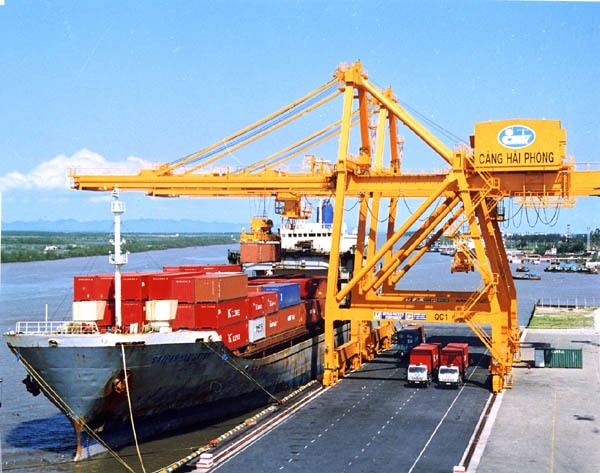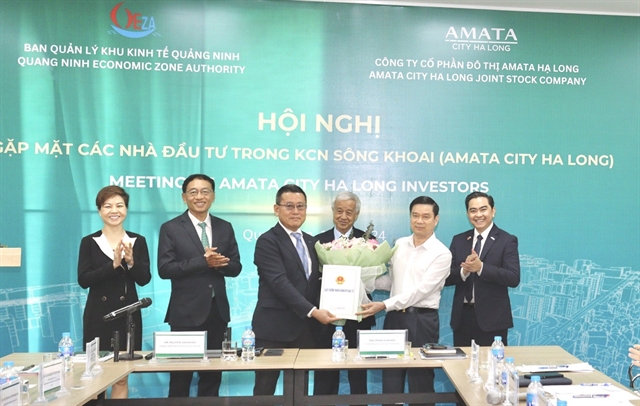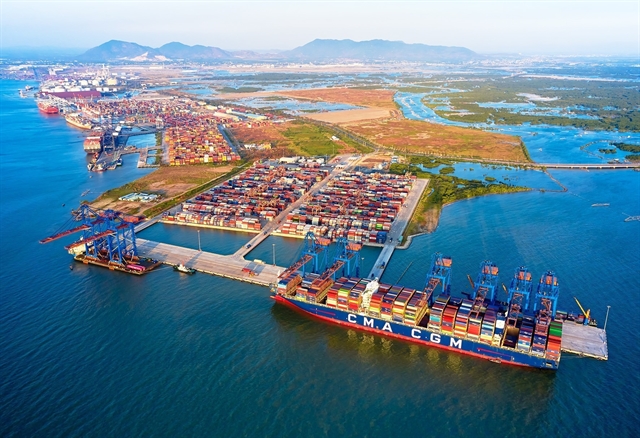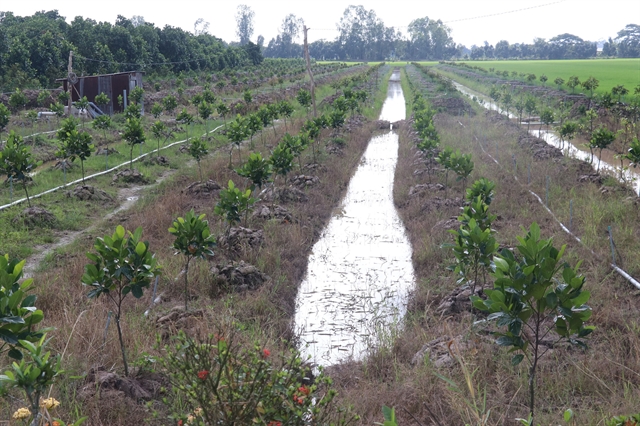 Economy
Economy

 |
| Weaknesses in the logistics sector has undermined the competitiveness of Vietnamese products, experts say. — Photo quanlydothi.com |
HÀ NỘI — The Ministry of Industry and Trade (MoIT) aims to make the logistics sector increase its national GDP contribution from the current 2-3 per cent to 8-10 per cent by 2025.
At a conference held in Hà Nội on Monday to find ways to boost the sector’s competitiveness, Khánh said that the Government should focus on attracting investment into developing infrastructure and building logistics centre at regional and global levels.
“Logistics plays a vital role in raising businesses’ competitiveness and in the supply chain,” he said.
For instance, he said, transporting shrimp from the Cửu Long (Mekong Delta) Region to the northern region was more expensive than getting goods from Ecuador to Việt Nam.
This is because the country’s logistics network has not grown evenly, focusing on some big cities like Hà Nội, Đà Nẵng and HCM City.
Many rice and seafood hubs, like the Mekong Delta Region, have seen slow logistics development, he said.
“With an import-export turnover of US$300 billion in 2016 that is expected to increase by 8-10 per cent a year in the coming time, the logistics sector has enough conditions to develop to new heights,” he said.
Trần Thanh Hải, deputy head of the ministry’s Import-Export Department said logistics has been a key sector in Việt Nam’s socio-economic development in the 2016-20 period.
Việt Nam has around 1,300 businesses operating in the sector, the majority of them local firms.
However, foreign firms account for up to 80 per cent of the logistics turnover despite the small number, Hải said.
He said most of Vietnamese logistics firms are of small and medium scale, making it difficult for them to compete against big foreign companies with strong connections worldwide.
The action plan will create a legal framework for logistics activities, including integrating it into production, and improve the capacity of local firms to catch up with import-export activities.
The plan will help promote investments of leading firms in the sector and mobilise capital from different sources including the State Budget, businesses, loans and international assistance.
Experts have said the country’s deep integration into the world economy will provide opportunities for the logistics sector to grow to new heights, but it will have be competitive enough to take advantage of them. — VNS









